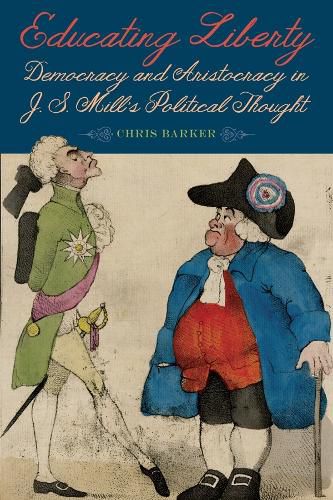Readings Newsletter
Become a Readings Member to make your shopping experience even easier.
Sign in or sign up for free!
You’re not far away from qualifying for FREE standard shipping within Australia
You’ve qualified for FREE standard shipping within Australia
The cart is loading…






Alexis de Tocqueville famously identified the problem of democracy as the tyranny of the majority, where the rule of the majority oppresses or marginalizes minorities and individuals. John Stuart Mill, perhaps more than any other liberal thinker, attempted to find a solution to this problem. In this study of Mill’s political theory, Chris Barker shows how Mill’s civic education transforms individuals into citizens who are free to form opinions, analyze arguments, and wield a power capable of moderating the irresponsible power of the ruling majority. Barker examines Mill’s thought as it is applied to five prominent components of democratic life-marriage, economic participation, scientific expertise, representative politics, and religion-with particular emphasis on gender and economic reform. Barker concludes that Mill’s interpretation of liberty is not well described as either negative or positive. Instead, liberty consists in the mental independence or thinking power of the educated individuals composing and challenging majorities.
CHRIS BARKER is Assistant Professor of Political Science at the American University in Cairo.
$9.00 standard shipping within Australia
FREE standard shipping within Australia for orders over $100.00
Express & International shipping calculated at checkout
Alexis de Tocqueville famously identified the problem of democracy as the tyranny of the majority, where the rule of the majority oppresses or marginalizes minorities and individuals. John Stuart Mill, perhaps more than any other liberal thinker, attempted to find a solution to this problem. In this study of Mill’s political theory, Chris Barker shows how Mill’s civic education transforms individuals into citizens who are free to form opinions, analyze arguments, and wield a power capable of moderating the irresponsible power of the ruling majority. Barker examines Mill’s thought as it is applied to five prominent components of democratic life-marriage, economic participation, scientific expertise, representative politics, and religion-with particular emphasis on gender and economic reform. Barker concludes that Mill’s interpretation of liberty is not well described as either negative or positive. Instead, liberty consists in the mental independence or thinking power of the educated individuals composing and challenging majorities.
CHRIS BARKER is Assistant Professor of Political Science at the American University in Cairo.